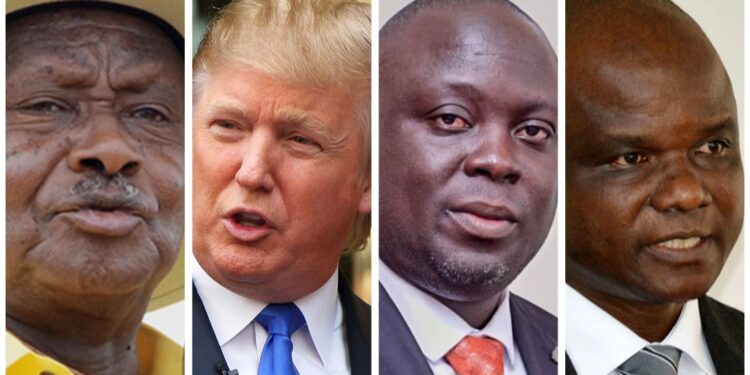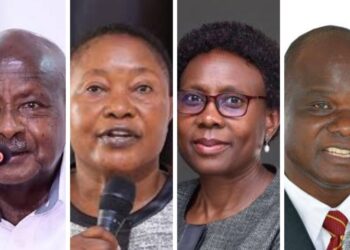Since assuming office on January 20, 2025, US President Donald Trump, is literally leaving no stone unturned. He has signed executive order after another, shaking the world at every stroke of the pen.
The executive order freezing USAID, a premier organisation through which the US has benefitted the world with “uncountable” dollars has bitten quite hard. Trump, through his Department of Government Efficiency (DOGE), run by his right-hand man, Mr. Elon Musk (of Tesla, X, Starlink and SpaceX fame) has dug deep into USAID and effectively disbanded it, with activities globally put on halt as a groundbreaking audit of its functions and funds use is done. USAID workers and those of affiliate organisations globally are affected, including Uganda. This is a bitter pill, and many are cursing, others unsure about the future.
However, for the alert, this shouldn’t come as a shock. As long as you are dependent on a source on which you have no control, the taps could run dry anytime and you find yourself stuck. The reaction from many is of consternation, disappointment and fear.
President Trump has his reasons. He wants every dollar spent tracked and accounted for, as well as the entire structure through which the funds were disbursed. Fervently at odds with the left and the pro-choice (abortion) and LGBTQ) agenda, he is doing anything to defund these activities.
But, as Africans, let’s not cry (Tukaabe mpola). For how long are we going to preach the gospel of self-sufficiency while practicing dependence?
Luckily, our visionary leader, President Yoweri Museveni, a Pan-Africanist par excellence foresaw this, and more to come. President Museveni has taught, preached, begged, cajoled, demonstrated and practically guided us to forget about foreign aid and aim for production and fair trade. Whenever he has stepped out of the country and gone overseas, it is always to negotiate for business for our goods and services, less of aid. Aid only comes as a bonus to bolster bilateral relations, but it is not a given and, unfortunately, it has captured mindsets of generations of post-independence Africans expecting freebies from the developed world.
If I could ask a question; who aided the developed nations to achieve their current status? They had no resources or climate like ours. They looked inward and used their brains to find self-sufficiency. Raiding for colonies and channeling natural resources to boost their industry and production was still a consequence of their diligence.
Africa has “mined” aid from them for over half a century but have we used that aid to buttress our economies to a point where no policy revision out there would jolt us? This is the hard lesson we are learning.
Just last year, there was effusive debate on rationalising certain agencies which were extra to need in terms of cost and efficiency.
That’s how Uganda National Roads Authority (UNRA), Uganda Coffee Development Authority (UCDA), etc, were dissolved and reintegrated into their mother ministries.
President Museveni was audibly and demonstrably pro-rationalisation, while the opposition and sections of their local and foreign backers, plus armchair critics pushed against the idea. But, eventually, the rational side won and “rationalisation” carried the day. What Trump is doing with USAID-and I hear soon the Pentagon-is rationalisation, the way it was done here. The American President is literally copying from President Museveni’s script. The Trump administration is planning to merge USAID with the Department of State.
President Museveni’s opponents talk a lot about lean government, prudence in expenditure, fighting corruption and extracting maximum value-for-money. However, when it comes practical steps to achieve that, they have little to offer. Their aim is obviously political, not considerate because they know that efficiency strengthens service delivery and gains support for the Government.
Yet rationalisation doesn’t, in fact, earn automatic popularity for one as it comes with loss of opportunities for many such as employees and others that benefit along the value-chain. Its benefits are only seen after a time. Good leaders don’t do things just for popularity. They do them because they must.
Former Kenyan President Uhuru Kenyatta came out in free style questioning those crying out about the “USAID purge”.
“Why are you crying?” he said, at a meeting. “It’s not your money.” He advised Africans to build their own economies and stop looking at foreign aid which some use to buy guns to kill one another. No one is really celebrating anyone’s loss of opportunity but these are sane ideas to consider seriously.
As part of his proactivism, President Museveni has fought to create and preserve peace and stability in this region for people to be safe and work for their transformation. Then, he has created support mechanisms for different levels of homegrown producers to get them to go commercial. Some have warmed up to the idea while others are still sitting on their hands, perhaps waiting for more “USAID-like” shocks.
Among the far-sighted interventions is the Parish Development Model (PDM) initiative which was introduced to lift subsistence farmers into the money economy since 2022.
As of now, trillions have been sunk in and Ugandans are making the most of it. PDM was intended to awaken everyone that dependency, whether on family, relatives, friends, neighbours or even looking to Government for basics is unsustainable. Eventually, one has to do something to survive on their own but also support the cause of building a robust and diverse economy.
Once that happens, production, processing and trade increase; more foreign exchange is earned and wealth is created. You find more people in the private sector driving business, spurring tax revenue which generally improves the economic outlook of a country, as opposed to looking to Washington or to London every time there is a change in policy direction.
Teaching the PDM category to make money automatically means that a white collar worker in an agency facing phasing out is under more pressure to look beyond formal employment and diversify because you can’t know what the future holds. Someone employed as an expatriate for twenty years to be found stranded when austerity procedures are taken at their work place shows that the “aid basket” mindset is very much at work, and is responsible for low innovation zeal and productiveness. People always expecting sustenance from elsewhere- and miracles.
Rational government and inclusivity of all citizens in production is the only way we shall survive future economic and donor-dependent shocks.
The author is the Special Assistant to H.E the President of Uganda-Press and Mobilisation
Contact: faruk.kirunda@statehouse.go.ug
0776980486/0783990861
Do you have a story in your community or an opinion to share with us: Email us at editorial@watchdoguganda.com













